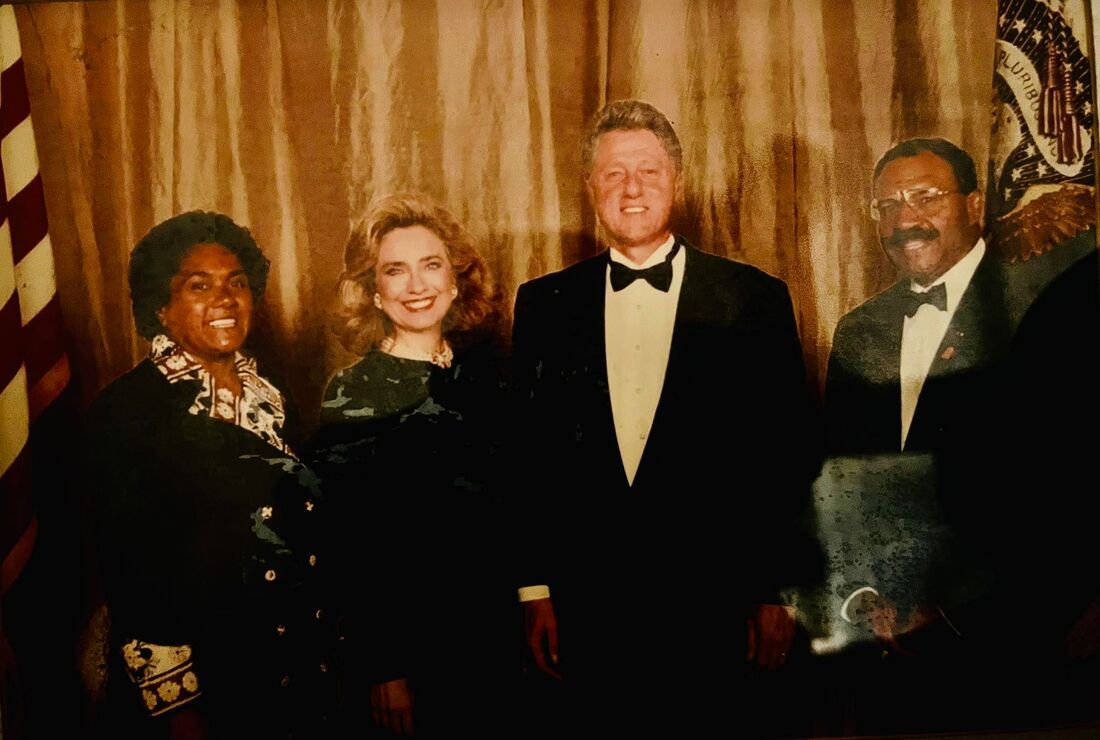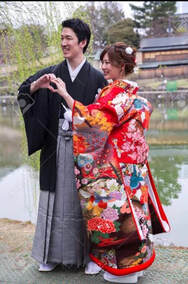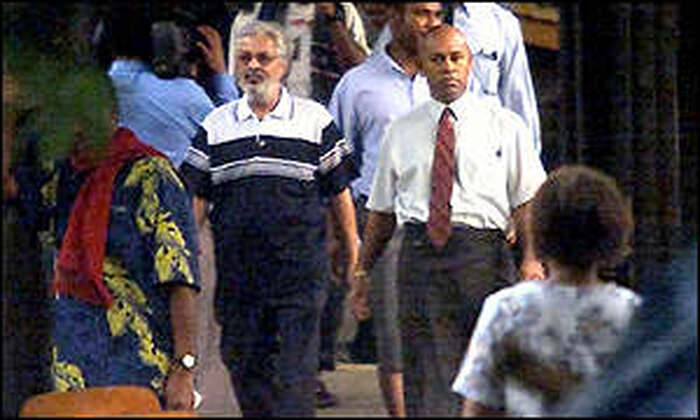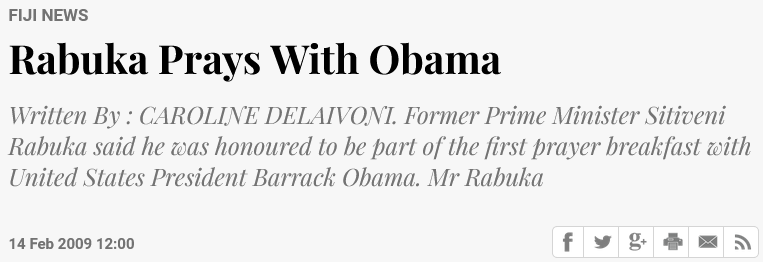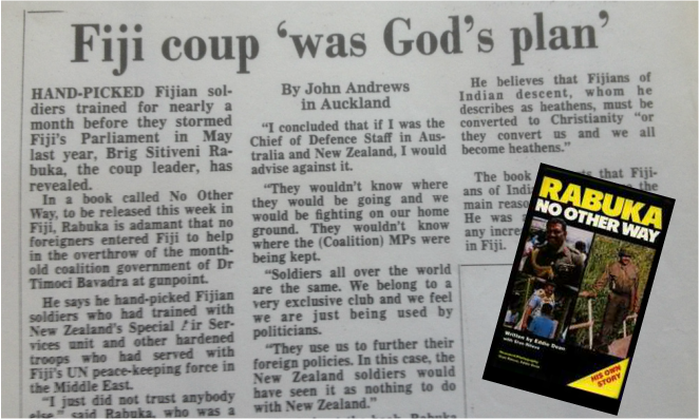ENTERTAINING COUPISTS AT THE BREAKFAST TABLE (Minus Speight)
It beggars belief how the United States while lecturing the world on democracy, freedom and human rights, is quick to lay breakfast for Fiji's dictators who came to power through the 'barrel of the gun'. In Rabuka's case, his 'Kama Sutra' mirrored Bill Clinton's while in power. Looks like the NFP's 'Don Juan [Bi[uan] Lothario is now competing for his political hubby's lascivious reputation. He is refusing to answer questions from Fijileaks regarding those 'disgusting texts' to Taniguchi's wife.
"People who want to be future leaders should steer clear of the path that I went."
Rabuka on his womanising before and during his marriage and fathering children from different women
| A typical Japanese Marriage Vow Watakushi wa kono josei to kekkonshi Fufu to narou to shite imasu Watakushi wa kenkouna tokimo Soudenai tokimo Kono hito o aishi Kono hito o uyamai Kono hito o nagusame Kono hito o tasuke Watakushi no inochi no kagiri Kataku sessou o mamoru koto o Chikai masu. | This woman, I marry No matter what the health situation is I will love this person Respect this person Console this person Help this person Until death Protecting fidelity I swear |
30 June 2000, The New Zealand Herald
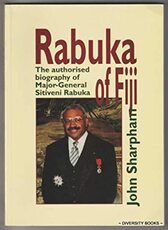
By WARREN GAMBLE
First it was Bill Clinton. Now former Fiji coup leader Sitiveni Rabuka has a confession or two to make about other women.
In Auckland to promote his new biography, Rabuka of Fiji, the 51-year-old defeated as Prime Minister last year fronted up about his personal indiscretions: "I have admitted I'm no angel ... I have been weak in those areas," he said.
The book, written by Australian academic John Sharpham, refers to General Rabuka's womanising before and during his marriage to Suluweti Tuiloma.
He fathered three children to two different women in the early 1970s after he had begun dating his future wife.
He was also caught with a succession of young women in his quarters during officer training.
The book also covers a scandal dubbed the "Kama Sutra" episode shortly before last year's elections, linking General Rabuka to a young woman golfer in the changing rooms at the Fiji Golf Club.
He publicly denied the changing-room incident, but the biography says "he almost seemed not to care that the relationship had become public."
General Rabuka would not comment further yesterday, but said he had owed it to the Fijian people to be frank, and also to set the record straight on "manufactured affairs."
The general said his problem with women was something he had to constantly combat.
He had considered divorce but his wife would not hear of it, and they were now going to a relationship counsellor.
"I think she probably took me for granted, and I took her for granted."
Like the United States President, General Rabuka hoped his affairs would serve as a warning to others: "People who want to be future leaders should steer clear of the path that I went."
He said the indiscretions had cost him politically, particularly in support lost to the new Christian Democratic Alliance party, which had split the Fijian vote.
In Fiji, some people had criticised the personal revelations as unnecessarily disruptive for the other women involved, particularly since the mothers of his other children are named.
But General Rabuka said that for any biography to be complete, it had to include personal and social influences.
After a promotional tour of Australia and New Zealand, General Rabuka will face a writ when he returns home next week.
Fijian President Ratu Sir Kamisese Mara has taken legal action over the book's claim that General Rabuka told him of a possible military coup to overthrow Dr Timoci Bavadra's Indian-influenced coalition Government in May 1987.
General Rabuka maintained yesterday that he had mentioned the coup option to Ratu Mara during golf two weeks before the coup, and believed he had the tacit support of the-then Opposition leader.
General Rabuka, who left politics after last year's election defeat, has not ruled out a return in 2004.
In the meantime, he has controversially advocated emigration as a way of easing racial tensions between Fijians and Indians.
He believes there will be an outflow of Indians as land leases revert to Fijian control over the next few years.
He does not see the possibility of another coup.
But he said indigenous Fijians dissatisfied with the new Government, which is led by the country's first Indian Prime Minister (Mahendra Chaudhry), had largely themselves to blame for vote-splitting last year.
First it was Bill Clinton. Now former Fiji coup leader Sitiveni Rabuka has a confession or two to make about other women.
In Auckland to promote his new biography, Rabuka of Fiji, the 51-year-old defeated as Prime Minister last year fronted up about his personal indiscretions: "I have admitted I'm no angel ... I have been weak in those areas," he said.
The book, written by Australian academic John Sharpham, refers to General Rabuka's womanising before and during his marriage to Suluweti Tuiloma.
He fathered three children to two different women in the early 1970s after he had begun dating his future wife.
He was also caught with a succession of young women in his quarters during officer training.
The book also covers a scandal dubbed the "Kama Sutra" episode shortly before last year's elections, linking General Rabuka to a young woman golfer in the changing rooms at the Fiji Golf Club.
He publicly denied the changing-room incident, but the biography says "he almost seemed not to care that the relationship had become public."
General Rabuka would not comment further yesterday, but said he had owed it to the Fijian people to be frank, and also to set the record straight on "manufactured affairs."
The general said his problem with women was something he had to constantly combat.
He had considered divorce but his wife would not hear of it, and they were now going to a relationship counsellor.
"I think she probably took me for granted, and I took her for granted."
Like the United States President, General Rabuka hoped his affairs would serve as a warning to others: "People who want to be future leaders should steer clear of the path that I went."
He said the indiscretions had cost him politically, particularly in support lost to the new Christian Democratic Alliance party, which had split the Fijian vote.
In Fiji, some people had criticised the personal revelations as unnecessarily disruptive for the other women involved, particularly since the mothers of his other children are named.
But General Rabuka said that for any biography to be complete, it had to include personal and social influences.
After a promotional tour of Australia and New Zealand, General Rabuka will face a writ when he returns home next week.
Fijian President Ratu Sir Kamisese Mara has taken legal action over the book's claim that General Rabuka told him of a possible military coup to overthrow Dr Timoci Bavadra's Indian-influenced coalition Government in May 1987.
General Rabuka maintained yesterday that he had mentioned the coup option to Ratu Mara during golf two weeks before the coup, and believed he had the tacit support of the-then Opposition leader.
General Rabuka, who left politics after last year's election defeat, has not ruled out a return in 2004.
In the meantime, he has controversially advocated emigration as a way of easing racial tensions between Fijians and Indians.
He believes there will be an outflow of Indians as land leases revert to Fijian control over the next few years.
He does not see the possibility of another coup.
But he said indigenous Fijians dissatisfied with the new Government, which is led by the country's first Indian Prime Minister (Mahendra Chaudhry), had largely themselves to blame for vote-splitting last year.
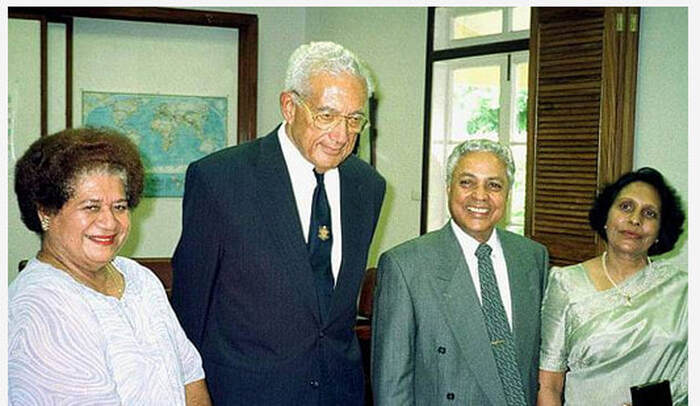
Fiji's first Indo-Fijian Prime Minister Mahendra Chaudhry (2nd R) and his wife Virmati Chaudhry (R) pose with President Ratu Sir Kamisese Mara (2nd L) and president of the Fiji Labour Party Jokabeci Koroi (L) at Chaudry's swearing-in ceremony in Suva, 19 May 1999. Chaudry vowed to steer Fiji away from the racial politics which had divided the island in the past.
Fijileaks: Yes, it is a GROSS LIE from the Paapi and his political team
Former Prime Minister Sitiveni Rabuka said he was honoured to be part of the first prayer breakfast with United States President Barrack Obama.
Mr Rabuka who has attended prayer breakfasts with US Presidents in the past said this one was no different from the last two, except that he had grown older.
He was among the VIP’s selected to fellowship in a private room into which Mr Obama was to have attended for a short meeting before the breakfast.
Unfortunately, Mr Obama’s pre-breakfast schedule that morning was so tight that he did not have time. So they saw and heard him in the main Breakfast Hall.
“This one (prayer breakfast) was not different from the other two, except that I am now older and have had the good fortune to observe our own political changes in the ten years that I have been out of government and used my experiences in government and after leadership to pass on to other world leaders present my insight into world leadership problems, solutions and commonalities,” said Mr Rabuka.
Mr Rabuka had attended one during President Bill Clinton’s time.
He also featured in former President George Bush’s first Prayer Breakfast, six days after being declared winner of the elections by the Supreme Court.
The event is usually hosted by Congress on the first Thursday of every year.
“I have featured in all the three I attended. During my visit at Bush’s first, I was invited to be a Dinner Speaker, and on this last visit I was invited to be the last of the closing dinner speakers,” he said.
“I have always been impressed with the sincere and frank exchanges on the world leaders’ faith and how possible it is to come together in spite of our political opposition to others.”
Mr Rabuka was accompanied by his wife Sulueti, Colonel Ilaisa Kacisolomone and his wife, and Keni Dakuidreketi.
He said he also asked the Joint Congressional and Senate Committee to invite two of his former PM’s Office staff members, Aliti Cagica and Torika Uluiviti.
Mr Rabuka who has attended prayer breakfasts with US Presidents in the past said this one was no different from the last two, except that he had grown older.
He was among the VIP’s selected to fellowship in a private room into which Mr Obama was to have attended for a short meeting before the breakfast.
Unfortunately, Mr Obama’s pre-breakfast schedule that morning was so tight that he did not have time. So they saw and heard him in the main Breakfast Hall.
“This one (prayer breakfast) was not different from the other two, except that I am now older and have had the good fortune to observe our own political changes in the ten years that I have been out of government and used my experiences in government and after leadership to pass on to other world leaders present my insight into world leadership problems, solutions and commonalities,” said Mr Rabuka.
Mr Rabuka had attended one during President Bill Clinton’s time.
He also featured in former President George Bush’s first Prayer Breakfast, six days after being declared winner of the elections by the Supreme Court.
The event is usually hosted by Congress on the first Thursday of every year.
“I have featured in all the three I attended. During my visit at Bush’s first, I was invited to be a Dinner Speaker, and on this last visit I was invited to be the last of the closing dinner speakers,” he said.
“I have always been impressed with the sincere and frank exchanges on the world leaders’ faith and how possible it is to come together in spite of our political opposition to others.”
Mr Rabuka was accompanied by his wife Sulueti, Colonel Ilaisa Kacisolomone and his wife, and Keni Dakuidreketi.
He said he also asked the Joint Congressional and Senate Committee to invite two of his former PM’s Office staff members, Aliti Cagica and Torika Uluiviti.
